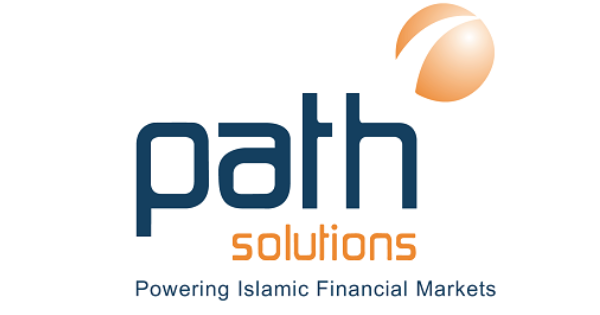E-Financial
Bank of Abyssinia Taps into Path Solutions to Achieve Sharia Compliance

Path Solutions, a global provider of AAOIFI-certified software solutions and services for Islamic banks and financial institutions, has announced the signing of a new partnership agreement with Bank of Abyssinia (“BoA”), one of the leading banks in Ethiopia serving more than 4.6 Million customers through 580+ branches and Islamic windows.

As a new addition to Path Solutions’ fast-growing client base, BoA will be implementing iMAL*Islamic Financing and iMAL*Profit Calculation System for its Islamic window operations.
iMAL*PCS provides end-to-end capabilities to manage the entire profit calculation and distribution cycle, making Islamic profit distribution highly efficient. The process automation coupled with a complete set of dashboard data analytics capabilities gives decision makers of Islamic financial institutions the tools to make fast and accurate decisions.
The solution includes innovative pool structures and profit distribution rates to ensure customer satisfaction is maximized in accordance with Sharia principles.
All profit rate adjustments are made according to the Sharia and handled automatically by the system, which also allows Islamic financial institutions to specify the rules for splitting profits.
The system provides each bank with facilities to tailor its own profit calculations according to the product set and define pool structures that reflect the income and expenses for finance and investment transactions funded by each pool.
Mohammed Kateeb, the Group Chairman & CEO of Path Solutions commented, “I am delighted to welcome BoA to our growing list of partners in Africa. We’ve got an impressive track record of working with financial institutions in integrating our AAOIFI-certified suite of services with their existing core banking platform, whether conventional or Islamic.
BoA’s decision to entrust our Sharia-compliant profit calculation and distribution system is testament to our ability to effectively address the business pains financial institutions are experiencing, and the severe consequences for Sharia non-compliance”.
Ethiopia has recently allowed the formation of full-fledged interest-free banks, and thus several banks are currently planning to convert to Islamic or raising fund to start Islamic banking services.
However, most technology and software solutions in the country are designed for the conventional banking infrastructure.
A pure Islamic software, certified by AAOIFI such as iMAL from Path Solutions can be seamlessly incorporated into an Islamic financial institution, and it can be integrated with any conventional core banking platform to enable the organization to compete more effectively in this competitive business environment.
“After much research and due diligence on Islamic banking software, we chose Path Solutions’ iMAL for its broad and comprehensive set of features, flexibility, and compliance with AAOIFI’s Sharia and accounting standards”, said Abdulkadir Redwan, Director – Interest Free Banking at BoA.
“Our partnership with Path Solutions is vital to ensure all Islamic requirements are met for our stakeholders, and to compete in the rapidly changing Islamic financial landscape in the country.
“The iMAL*PCS deployment will enable us to utilize the net income during the calculation period and distribute it among investors according to the Sharia guidelines. In addition to its advanced automation capabilities, this all-inclusive system will allow us to offer new Sharia-compliant products to our customers with a truly differentiated customer experience”.
BoA represents the first signing for Path Solutions in Ethiopia. Driven by ambitious objectives and the lure of new untapped markets, more and more IT vendors are looking to expand in Africa.
Path Solutions has a long history of addressing the special needs of Islamic banks in the African continent, particularly with the provision of AAOIFI-certified software solutions and services.
E-Financial
IFC Unveils $310M Investments to Support Smaller Businesses and Advance Job Creation

IFC has announced investments totaling $310 million in projects that will support the growth of smaller businesses and job creation across several African countries. The projects were announced at the Africa Financial Summit (AFIS), which convened private and public sector representatives from across Africa under the theme of mobilizing domestic capital at scale for development.

The two-day event, co-hosted by IFC, the Jeune Afrique Media Group, and the Kingdom of Morocco, featured discussions among African central bank governors, regulators, financial institutions, and fintech innovators on how Africa can best tap its own resources—and attract more foreign investment—to shape the continent’s financial future, create jobs, and sustainably grow its economies.
On the sidelines of AFIS, IFC announced partnerships with several financial institutions that will channel funds and support towards businesses in Egypt, Ethiopia, and Morocco, helping businesses grow and reach new markets.
The new projects IFC announced are:
- A $50 million financing package to Suez Canal Bank will expand lending to smaller businesses across Egypt, particularly in underserved regions. A quarter of the loan is earmarked for women-owned businesses to help bridge the gender financing gap and boost inclusive growth.
- A $10 million equivalent IFC local-currency risk-sharing facility with Attijariwafa Bank Egypt to expand access to finance for smaller businesses and support job creation. At least a quarter of the loans are earmarked for women-owned businesses, and half to SMEs in vulnerable communities. The initiative is supported by the Prospects Partnership, which supports development for host communities and forcibly displaced people.
- A $250 million IFC risk-sharing facility with newly established Saham Bank will strengthen Morocco’s financial stability and expand access to finance for local businesses. IFC will share up to 50 percent of the credit risk on the bank’s $500 million corporate loan portfolio, helping sustain lending to key sectors. Saham Bank recently acquired Société Générale Marocaine de Banques.
- An IFC advisory services support program for VisionFund to help the microfinancier expand lending to smaller businesses and deepen financial inclusion in Ethiopia. The project will strengthen VisionFund’s capacity in strategic business planning, risk management, and responsible finance, enabling it to reach more underserved entrepreneurs—especially women. This initiative follows IFC’s recent $10 million local currency loan to VisionFund.
Ethiopis Tafara, IFC’s Vice President for Africa, said, “The combination of Africa’s own financial resources with strategic international capital is a potent recipe for growth on the continent. Africa’s entrepreneurs are building companies that rival any in the world—and with the right support, they can grow and create the jobs and opportunities Africa needs. These projects underscore the power of partnerships as well as the important role of events like AFIS in bringing together like-minded organizations for development and impact.”
AFIS was established in 2021 to promote a shared understanding among public authorities and private sector leaders of the trends and risks shaping the continent’s financial industry. Through open dialogue and collaboration, AFIS helps identify opportunities for improvement, whether through regulatory reforms or market-driven initiatives.
This year’s event brought together more than 1,250 senior leaders from Africa’s financial sector—including those who manage Africa’s savings with those who can channel international investment—with the aim of delivering more funds to job-creating African businesses and projects.
Over the past two decades, IFC has collaborated with more than 300 financial institutions across 40 African countries to enhance banking systems, expand access to finance, and mobilize private capital. This partnership has helped build the foundations for opportunity—fueling enterprise, enabling jobs, and driving the continent’s next generation of growth.
E-Financial
Court Jails Asiegbu, Former Wema Bank’s Manager 3 Years for N8Bn Fraud

Justice Rahman Oshodi of the Lagos State Special Offences Court in Ikeja on Wednesday, convicted and sentenced Samuel Asiegbu, former financial and retail product manager with Wema Bank Nigeria Plc, to three years in prison for hacking and stealing N8.56 billion from the bank vault.

Justice Oshodi jailed Asiegbu, without the option of a fine, after pleading guilty to the eight-count charge of conspiracy, fraud and unauthorised access to a computer system.
The convict was accused by the Economic and Financial Crimes Commission (EFCC) alongside Hamza Zakaria, Nurudeen Ibrahim and Alhaji Sulaiman of manipulating the bank’s internal systems in January 2025 to cause a financial loss of over N8.5 billion.
The anti-graft agency informed the court on June 23, 2025, when the defendants were first arraigned, that the offences violate Sections 409 and 386 of the Criminal Law of Lagos State, 2011.
All the defendants had initially pleaded not guilty to the charge.
However, Asiegbu later changed his plea to guilty, leading to his conviction and sentencing.
Justice Oshodi sentenced the convict to 10 months and 8 days in prison for count three and 1 year and 8 months for count four, both sentences are to run concurrently and without an option of a fine.
The court subsequently struck out counts one and two.
The judge has fixed November 14 for the commencement of the trial of the remaining defendants.
E-Financial
Mastercard Champions Inclusive Growth Across the Continent @Africa Edge 2025

Mastercard held its inaugural Africa Edge summit, convening leaders from across Africa’s payments ecosystem to explore how collaboration and innovation can accelerate the continent’s digital growth.

Mark Elliott, division president, Africa, Mastercard at Africa Edge 2025.
The forum focused on building the infrastructure, trust and interoperability needed to support Africa’s fast-growing digital economy, projected to reach USD 1.5 trillion by 2030, and create new opportunities for consumers and small businesses.
Hosted by Mark Elliott, division president, Africa, Mastercard, the event brought together senior representatives from banks, fintech companies, telcos, regulators and technology partners.
Speakers and panelists discussed how to expand low-cost acceptance, improve interoperability and enhance security at scale to create a more inclusive and resilient economy.
With internet penetration in Africa projected to grow at 20 percent annually, participants agreed that seamless, secure and connected payment systems are essential to sustaining growth and unlocking new opportunities for trade and entrepreneurship.
During the event, Mastercard showcased two breakthrough innovations shaping the future of digital commerce. The first-ever Agent Pay transaction in EEMEA was executed live, marking a major step toward autonomous, secure and accessible payment experiences.
In addition, Mastercard launched the Merchant Cloud, a unified platform that brings together payments, AI and security to help merchants grow their businesses confidently in an omnichannel environment.
Both innovations underscore Mastercard’s commitment to building intelligent, inclusive and resilient payment ecosystems that power Africa’s digital transformation.
Mark Elliott, division president, Africa, Mastercard, said, “Africa Edge is a reflection of Mastercard’s long-term commitment to this continent.
“It is about collaboration and supporting partners across the ecosystem to deliver secure, seamless and accessible digital experiences that help people and businesses grow.
“Africa’s digital economy is scaling fast, and Mastercard is proud to be a trusted technology partner helping power that growth.”
Throughout the day, discussions highlighted the growing importance of payment immediacy and liquidity, with panelists noting how same-day settlement helps small businesses absorb shocks, reduce borrowing needs and reinvest faster.
South Africa’s real-time clearing system was cited as a model as Mastercard advances instant-payment capabilities across multiple African markets.
Ling Hai, president of APEMEA, Mastercard, further highlighted faster payments as critical to helping small businesses manage cash flow and grow.
He emphasized that Africa’s digital future depends on simple, safe and accessible payment solutions that work across markets and devices, calling for closer collaboration between the public and private sectors to ensure innovation benefits everyone.
Futurist John Sanei, the event’s keynote speaker, explored how human adaptability and emotional intelligence will define leadership success in an era of AI-driven change.
A spotlight session with Smile ID addressed the rising threat of synthetic identities and deepfakes, highlighting how Mastercard and Smile ID are combining AI-driven liveness checks and verification to strengthen digital onboarding and reduce fraud across African markets.
Folasade Femi-Lawal, country manager, West Africa, Mastercard, said: “West Africa is home to one of the world’s fastest-growing fintech sectors. Nigeria alone accounted for 28 percent of all African fintech companies in 2024, attracting nearly USD 400 million in investment.
“By combining global technology with local insight, we are helping banks, fintechs and innovators build open, trusted and scalable infrastructure.
“Our collaborations with governments, banks and fintech companies in the region are making digital payments simpler and safer for millions, proving that inclusion and innovation can move forward together.”
The event culminated in a celebratory awards ceremony and gala dinner, recognizing outstanding contributions from Mastercard’s partners and customers across Africa who are advancing innovation and inclusion in the digital economy.

 E-Business3 days ago
E-Business3 days agoMeta, NDPC Resolve $32.8m Privacy Dispute Out of Court

 E-Financial3 days ago
E-Financial3 days agoFirstBank, Verve Launch Flash Promo with Free Debit Cards Nationwide

 E-Financial3 days ago
E-Financial3 days agoCBN Says High Bank Fees, Multiple Taxes Hamper Businesses

 News3 days ago
News3 days agoUK’S Mobilist Facilitates Secondary Sale of Listed Shares in InfraCredit

 E-Financial3 days ago
E-Financial3 days agoNELFUND Student Loan Applications Surpass 1m in Under a Year

 E-Financial2 days ago
E-Financial2 days agoZachXBT, Crypto Investigator Lists Nigeria, Others as Worst Jurisdictions for Scam Victims

 General News3 days ago
General News3 days agoAI Should Be an Enabler, Not a Replacement for Human Creativity – Dr. Lakinbofa Goodluck

 Telecom2 days ago
Telecom2 days agoFUNAAB 500-Level Student Wins 5th Brand New Car at MTN Pulse Campus Invasion



















